Trying to Do Fitness Without Diet Culture? Avoid These 10 Mistakes
Navigating fitness without diet culture has been one of the greatest challenges of my both my professional and personal life. It’s also been one of the most rewarding and meaningful things I’ve ever done.
Navigating fitness when you’ve just started to realize why diet culture is harmful is 10x harder.
How do I even DO fitness now?
Can you still do more intense workouts?
Is fitness inherently diet culture?
How do you even measure your progress when you’re not using the scale or before/after pix?
Is it possible to have any sort of goals without being obsessive over them?
Do you actually have to take an extended period off exercise like so many people say?
Are walks and gentle yoga the only way to do “joyful movement”?
These are all questions I asked myself when I started down this “body positive” rabbit hole back in 2016. At the time I began my journey, it was very easy to find non-diet dietitians and Health At Every Size aligned therapists to follow online. Everyone was studying to become an Intuitive Eating Counselor. Body image coaches were a dime a dozen.
And almost nobody was talking about the exercise piece!
How was that possible? Your relationship with exercise, food, and your body are SO intertwined.
At one point I did an online course with a very well-known person in the anti-diet space designed to help other professionals share their message. I was one of the only personal trainers in that group. In spite of this, it seemed like all of these dietitians and therapists had the same opinion on this whole “joyful movement” thing.
“Walks and gentle yoga“, they said. “The fitness industry is toxic. Stay away.”
Was this really my lot in life now? The irony is that fitness wasn’t even in their scope of practice to begin with. Which I find ironic, considering the backlash personal trainers get for writing meal plans. But in any case, any mention of exercise was always an afterthought at best. Just rest! They would say. You don’t have to move your body if you don’t want to.
Ok cool. But what if you DO want to?
What do you do then?? What if you actually think it’s fun to challenge yourself physically? What if you’ve been an athlete (in my case a dancer) your whole life? What if this is your career? What if you know that hiding in underneath all the #transformationtuesday pix and #fitspo that there’s still a lot of good to be found?
What if instead of avoiding the fitness industry and writing it off, we work to change it?
What if we (the fitness professionals) started working to help people change their relationship with exercise instead of throwing it all out the window? We need to start questioning everything we ever knew AND everything we’re learning. That’s what I’m here to help you figure out. Because here’s the thing:
If you go from unquestioningly listening to “wellness” influencers to unquestioningly following the advice of anti-diet professionals, it’s just another flavor of the same shit sandwich.
There is no room for autonomy in either. There is no room for your lived experience. No room for your unique likes and dislikes. Many of us spent so much of our past lives drinking the wellness kool-aid (green juice? bulletproof coffee??) without question that when we finally came around to something different, we went all in with it. Failing to realize that we were falling into the same trap that got us into trouble the first time.
To share one of my favorite quotes ever:
“Rebellion is as much of a cage as obedience is. They both mean living in reaction to someone else’s way instead of forging your own. Freedom is not being for or against an ideal, but creating your own existence from scratch.”
Glennon Doyle
These days I’m less about labels, and more about creating my own version of what fitness looks like without diet culture. I invite you to do the same. And because I spent FAR too many years accepting what was told to me without question (from both sides), I’d like to share with you some mistakes I made in the beginning. Maybe I can save you from making them too? Here are 10 mistakes to avoid when you’re trying to do fitness without diet culture.
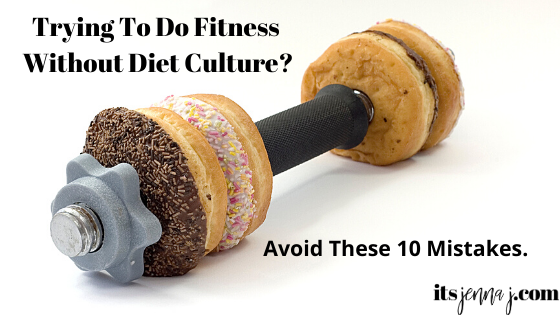
1. Know what fitness advice is meant for you.
Some personal trainers specialize in working with bodybuilders, others with people who are in recovery from a full blown eating disorder. And everything in between. Not all of them are talking to you. In fact, 99.9% of them know nothing about you. Nobody can give you fitness advice with 100% certainty without knowing the depth of your lived experience. (But a good coach will take the time to get to know it.)
2. Don’t assume someone’s automatically “good” or “bad” based on how they label themselves.
Fitness professionals who label themselves as “body positive” are often just co-opting buzzwords. Especially as it becomes more mainstream. People who don’t embrace these labels might actually align with your values once you get to know them. That’s the key. Get to know people as whole humans before you judge or hire them.
3. Make sure you’re not creating an echo chamber of the same thoughts and ideas.
It’s easy to create an echo chamber for yourself when you’re following too many similar accounts on social media. Do unfollow diet culture-y accounts that make you feel like garbage about yourself. But is someone is addressing nuance that makes you uncomfortable or challenges your world view, stick around. There may be something to learn there, or some gray areas to explore.
4. If we want others to be open and curious about this stuff, we need to offer them a bit of the same.
It’s one thing to share new perspectives with people in your life. But if you get too militant with your newfound views from the get-go you might alienate people who might have otherwise gotten on board. Many people need more time and grace to warm up to the anti-diet message. It goes against everything we’ve been taught, especially when it comes to fitness. Give people space to process. And with that in mind. . .
5. Not everyone in your personal life will understand you. You don’t have to convert them all.
People who do things you hate (post before/after photos, do Whole30’s etc.) aren’t the enemy. They’re victims of diet culture, just like you probably once were. So when people come to me like “My best friend since 8th grade is doing Beachbody. How do I convince her not to?” My answer: You don’t. ??♀️ You can set boundaries around her talking about her 90 day burpee bonanza. But just like I don’t expect my sports loving introverted husband to be the person I invite to a Lizzo concert, I have certain friends who don’t understand how I’m a personal trainer who doesn’t sell fat loss. It’s ok. We can still get together for a margarita and reminisce about high school once a year.
6. DO befriend people who are likeminded AND also open to discussing nuance.
Sometimes these people only exist on the internet. It’s good to be able to process new ideas with other humans who are on the same journey as you. It’ll help you feel less alone. To add to that, use these people to help you process the content (blogs, podcasts, social media posts etc.) that you consume for free. Just because someone is a content creator doesn’t mean they’re available for you to “pick their brain” or to educate and coach you for free 24/7.
7. Remember that this whole “joyful movement” thing looks different for everybody.
You don’t have to like what other people like. You don’t have to hate running unless you actually hate running. You don’t have to hate traditional gym settings unless your gym is actually full of shitheads. You’re allowed to enjoy more intense forms of movement and more subtle ones. Don’t let anyone else tell you what’s “joyful” and what’s not.
8. Remember that movement doesn’t always have to be “joyful”.
I love the idea of joyful movement. And I think the name also gives people the perception that it needs to look like Julie Andrews twirling in a meadow to not be laced with diet culture. Not true. We move for all kinds of reasons. Some of us also work out and train sometimes too (theres a difference). None of it should be inspired by guilt and body shame. But it can also be tolerable, useful, functional, and many other things. That’s still ok!
9. Keep in mind that all movement is morally equivalent but it doesn’t all help you reach the same goal.
I’m a firm believer that you should never have to do movement you hate if you don’t want to. You’re not morally better than someone because of your choice of workout. AKA nobody is saying you’re a bad person if you don’t lift weights. AND if you have a goal of improving your upper body strength, riding your bicycle to work once a week isn’t gonna get you there.
10. Don’t trade one measure of your worth for another.
When you give up measuring your worth by the number on the scale, it can feel really freeing. Also make sure you aren’t trading that measure for something else. Like the amount of weight you can lift, for example.
Just because you don’t have this all figured out by yourself doesn’t mean your own inner wisdom doesn’t matter.
Navigating the world of fitness when you’re trying to let go of diet culture is hard. Sometimes it’s helpful to have others to walk beside you. And sometimes you have to trust your intuition and know what’s true for you when you shut out all the noise. The more I learn, the more I realize that I know nothing. That the answer is very often “it depends”. Anyone worth listening to will likely agree.
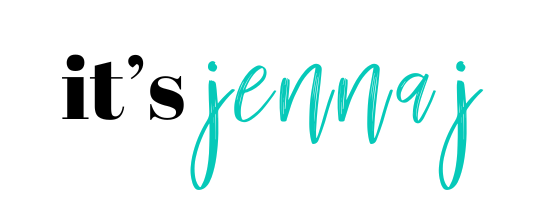
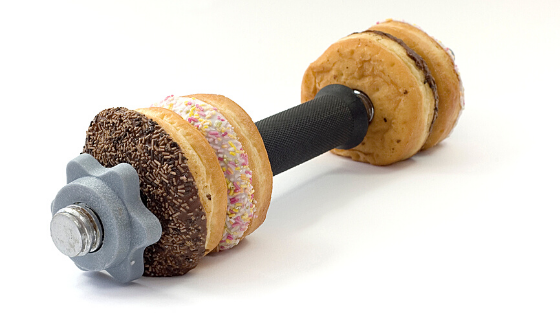
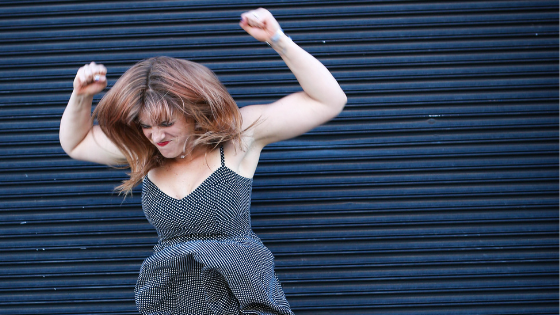
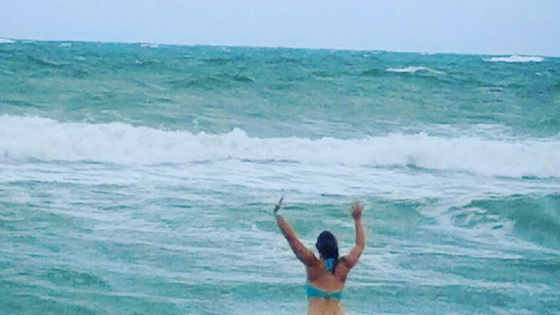
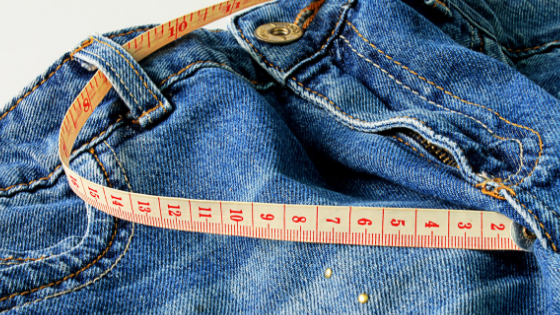
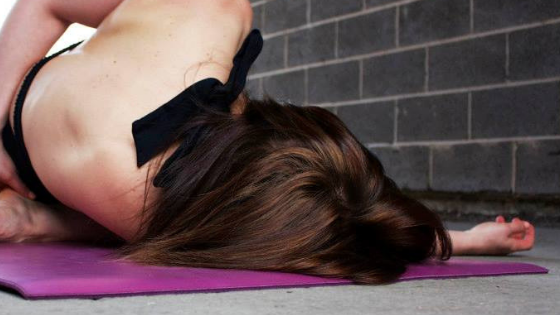
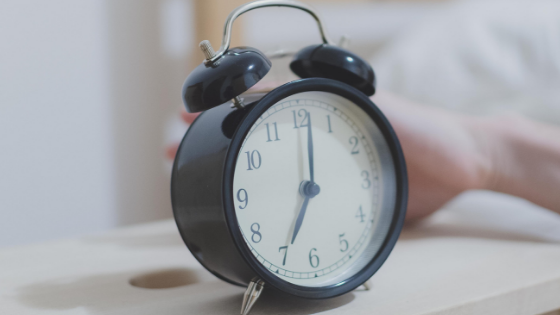
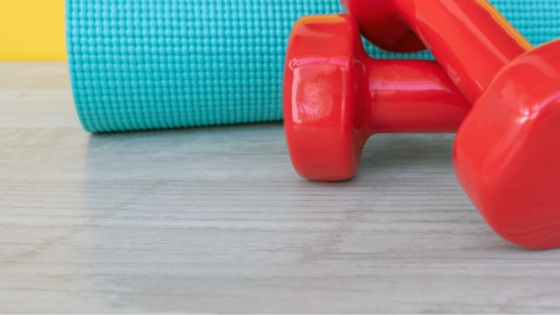
Great article! I was actually wondering about this recently. I can’t comprehend telling people not to exercise, especially considering the pandemic. I started running to not go insane being trapped in my small apartment for months on end.
I made the executive decision to stop paying attention to fat activists / bodypos influencers because it seems like they’re trying to make me fat and sick for some agenda to normalize the rising average weight in this country. I wish I never read The Fuck It Diet. (More like fuck your health diet). Stop exercising, and eat all the things that are “banned” on diets out of principle, without any consideration for your health concerns or food intolerances! Those food intolerances are all in your head and you’ll cure them by eating the foods!
I’m an idiot for taking advice from a fat activist. Now I get to spend the rest of this year undoing the damage from one month on the fuck your health diet, and I really just have myself to blame for blindly following the book without asking questions.
Thanks for reading Chrystal. I’m sorry that was your experience. The important thing to remember when reading any book (or blog post for that matter) is whether or not the author is talking to you or someone in your situation. And that you always have permission to take what works for you and leave the rest. For example, I found aspects of The Fuck It Diet helpful as someone recovering from orthorexia who had no real underlying food intolerances or allergies. I always felt the “you don’t have to work” out advice annoying though, because I too, like you felt like I was gonna go insane during quarantine and genuinely love to move and know there are so many benefits. Like I get the zoomies. LOL. Wishing you grace, balance, and whole health free of labels. <3